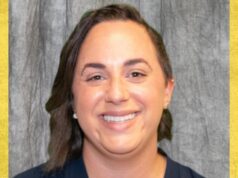Delegates narrowly voted against the motion that “Population screening [for abdominal aortic aneurysm] in women is a waste of time”, 55 to 45%, at the CX Symposium in London this April.
Nick Cheshire, Imperial College London, UK, fought the corner of the “fairer sex”, using, he said, the same data as his opponent Jesper Swedenborg, Karolinska Hospital, Stockholm, Sweden.
“You asked whether I’d dug very deep into the literature to counter your argument,” Cheshire said to Swedenborg. “I’m going to show you that I didn’t need to; I’m going to use the data you have shown us already to argue the exact opposite of your erroneous conclusions.”
Both discussants admitted that data was limited, and relied in particular on studies by R Alan Scott, St Richard’s Hospital, Chichester, United Kingdom.
Swedenborg had argued that the data suggested that the potential for saving “life years” through screening for aneurysm was significantly lower in the female population. “Abdominal aortic aneurysms are much less common in women,” he said. “In order for a screening programme to be effective, there is a limit below which you cannot be in order for the programme to be effective. And it’s very likely that the prevalence in women is below that limit.
He showed that women have higher mortality rates after aneurysm repair, irrespective of whether the procedure is open surgery or endovascular. “The obvious conclusion is that screening women for aneurysm is a waste of time. Not only that, it’s a waste of money which could be used to improve women’s health in other areas.”
But Cheshire denied that there was evidence to support such a conclusion. The MASS study (Multicentre aneurysm screening study), he pointed out, showed that just 50 lives were saved from a cohort of 70,000 men over nearly five years. “The only randomised data in the literature for women comes from the Scott group. Under 10,000 women screened, for a disease that has something in the order of a quarter of the incidence [rate in men] for women under 65. This is not evidence. This is insufficient. And the Cochrane Analysis recognises this,” he said.
Cheshire highlighted the UK Small Aneurysm Trial, in which study women died of rupture more frequently than men did, and said that this was supported by Scott’s data too. “That’s a real indictment of us saying we shouldn’t be screening for female aneurysm.”













